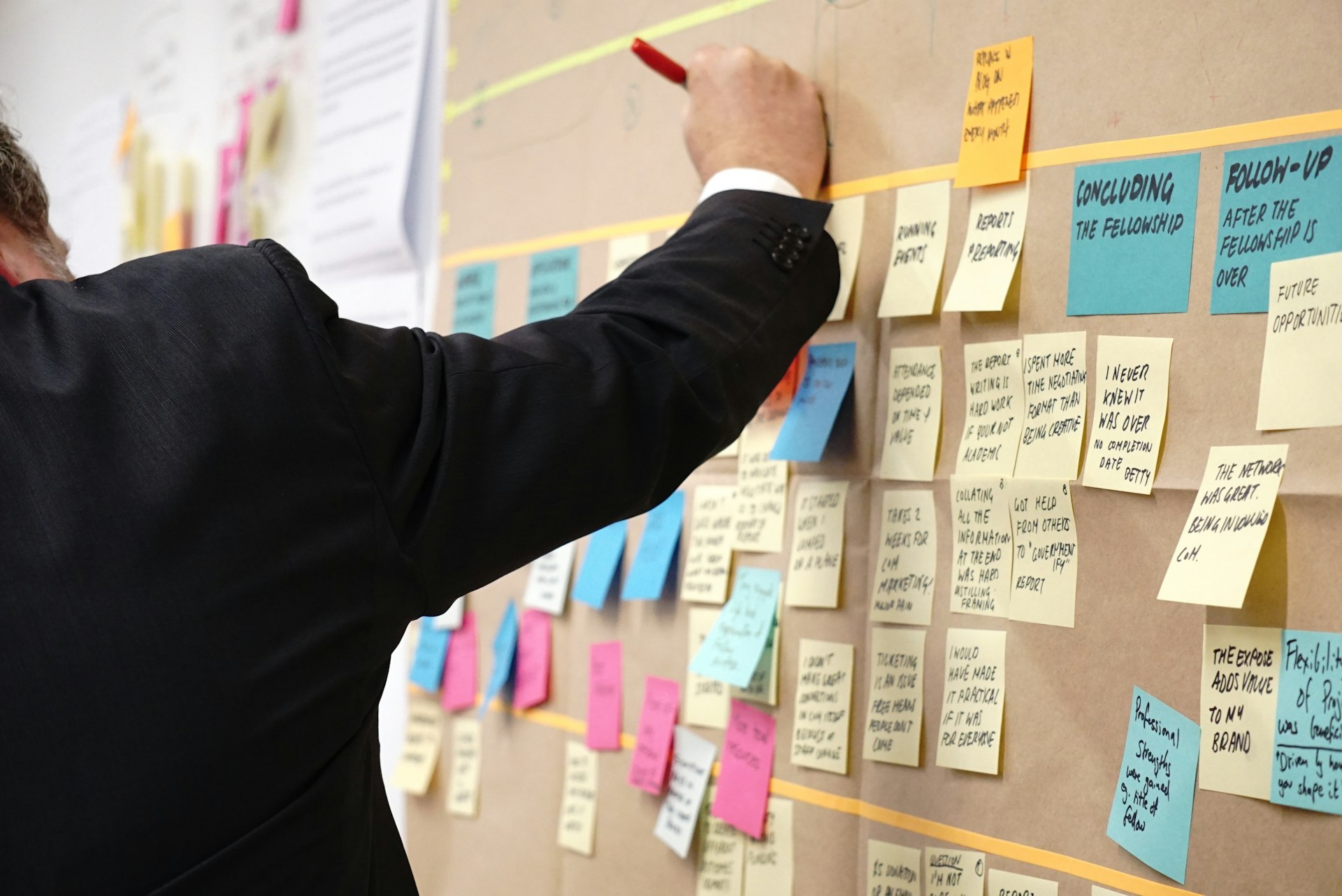Unlocking Mental Clarity: The Essential Role of Sleep Hygiene

Photo by Ahtziri Lagarde on Unsplash
Introduction: Why Sleep Hygiene Matters for Your Mind
Many people underestimate the profound impact that sleep hygiene has on mental clarity and cognitive function. Whether you’re a student, working professional, or simply want to feel sharper each day, understanding and practicing good sleep hygiene can make a measurable difference in your life. Research consistently demonstrates that healthy sleep habits not only restore energy but also support emotional stability and mental acuity [1] .
The Science: How Sleep Affects Mental Clarity
Sleep is a dynamic process during which your brain performs essential housekeeping tasks. It consolidates memories, processes emotions, and clears out toxins that accumulate during waking hours [5] . Studies from leading institutions reveal that inadequate sleep impairs attention, slows reaction time, and reduces the ability to process new information [2] . For example, just 48 hours without sleep can impair cognitive abilities as much as having a blood alcohol level above the legal driving limit in every U.S. state [2] .
During deep sleep, especially REM (Rapid Eye Movement) and slow-wave phases, the brain strengthens neural connections and integrates new knowledge for long-term storage. Without enough quality sleep, these processes are disrupted, leading to poor memory, reduced problem-solving skills, and foggy thinking [3] [4] .
The Link Between Sleep Hygiene and Emotional Well-being
Sleep is also central to emotional regulation. After a restless night, you might notice feeling more irritable, anxious, or sensitive. This is because sleep deprivation heightens activity in the amygdala-the brain’s emotional center-making you more reactive to stress [5] . Over time, chronic sleep loss is associated with increased risk for anxiety, depression, and even severe mood disorders [1] .
Conversely, improving sleep hygiene helps stabilize mood, reduce stress, and build emotional resilience. By prioritizing healthy sleep, you create a buffer against the daily pressures of life, supporting both your mental and emotional health [3] .
Key Components of Good Sleep Hygiene
Building better sleep habits involves more than just going to bed earlier. Here are foundational practices, each backed by scientific evidence, that you can implement to enhance sleep quality and mental clarity:
- Consistent Sleep Schedule: Go to bed and wake up at the same times each day, even on weekends. This helps regulate your body’s internal clock and improves sleep quality over time [1] .
- Limit Screen Time Before Bed: Reduce exposure to blue light from phones, tablets, and TVs at least one hour before sleep. Blue light interferes with melatonin production, making it harder to fall asleep [1] .
- Create a Comfortable Sleep Environment: Keep your bedroom dark, cool, and quiet. Consider blackout curtains, white noise machines, or earplugs to block disruptive sounds and lights.
- Avoid Stimulants Before Bed: Limit caffeine, nicotine, alcohol, and heavy meals in the hours leading up to bedtime. These can disrupt your sleep cycle and lower sleep quality [1] .
- Establish a Relaxing Routine: Engage in calming activities such as reading, meditation, or gentle stretching in the 30-60 minutes before sleep. This signals your body it’s time to wind down.
Step-by-Step: How to Improve Your Sleep Hygiene for Mental Clarity
Implementing sleep hygiene isn’t always easy, but following a structured approach can help you make sustainable changes. Here’s a step-by-step guide:
- Assess Your Current Habits: Keep a sleep diary for one week. Record when you go to bed, wake up, and any nighttime awakenings. Note how rested you feel each morning.
- Set Realistic Goals: Start by adjusting your bedtime in 15-minute increments, aiming for 7-9 hours of sleep per night as recommended by major health organizations [2] [4] .
- Limit Naps: While short naps can be restorative, long or late-day naps may interfere with nighttime sleep. If you nap, try to keep it under 30 minutes and before 3 p.m.
- Optimize Your Environment: Invest in a supportive mattress and pillow. Maintain a consistent temperature (ideally 60-67°F) and remove electronic devices from the bedroom.
- Monitor Progress: After two weeks, review your sleep diary. Look for patterns and improvements in daytime alertness, mood, and memory.
If you continue to struggle with sleep despite trying these strategies, consider consulting a healthcare professional. Sleep disorders such as insomnia or sleep apnea may require specialized assessment and treatment. You can find qualified sleep specialists by contacting your primary care provider or searching through established medical centers and academic hospitals.

Photo by Thirteen .J on Unsplash
Real-World Example: The Impact of Sleep Hygiene on Cognitive Performance
Consider the case of a college student preparing for final exams. Initially, she pulled all-nighters to cram, noticing her memory became unreliable and her mood erratic. After learning about sleep hygiene, she began following a consistent sleep schedule, reduced evening screen time, and practiced deep breathing exercises before bed. Within two weeks, she reported clearer thinking, improved test performance, and less anxiety-a direct result of better sleep habits [3] [4] .
Common Challenges and Solutions
Many people face barriers when working to improve sleep hygiene. Here are typical obstacles and practical solutions:
- Shift Work: Irregular hours can disrupt circadian rhythms. Try to keep sleep and wake times as consistent as possible, even on days off. Use blackout curtains and white noise to simulate nighttime during daylight hours.
- Stress and Anxiety: Racing thoughts can keep you awake. Incorporate mindfulness or journaling before bed to manage stress. If intrusive thoughts persist, seek support from a mental health professional.
- Medical Conditions: Chronic pain or sleep disorders often require medical intervention. Speak with your doctor about treatment options tailored to your needs.
Alternative Approaches and When to Seek Help
While most people benefit from sleep hygiene improvements, some may require additional support. Cognitive behavioral therapy for insomnia (CBT-I) is an evidence-based approach that addresses the underlying thoughts and behaviors that disrupt sleep. This therapy can be accessed through licensed therapists specializing in sleep medicine. To find a CBT-I provider, you can:
- Ask your primary care physician for a referral to a sleep clinic
- Search for “CBT-I therapist” along with your city or region
- Contact major academic medical centers or teaching hospitals
For complex cases, such as suspected sleep apnea or persistent insomnia, official resources like the American Academy of Sleep Medicine can help you locate accredited sleep centers. Visit the Academy’s official website or ask your healthcare provider for guidance.
Key Takeaways and Next Steps
Improving sleep hygiene is one of the most accessible and effective ways to enhance mental clarity and emotional well-being. By adopting consistent routines, creating a restful environment, and recognizing when to seek professional help, you can unlock the full benefits of sleep for your mind and body.
If you are seeking further resources or professional guidance, consider contacting your primary care provider or searching for “sleep specialist near me” using reputable medical directories. For academic research and updates on sleep health, the websites of major universities and health organizations offer trustworthy information.
References
- [1] American Behavioral Clinics (2023). Sleep Hygiene and Its Importance for Mental Health.
- [2] Harvard Health Publishing (2022). Sharpen Thinking Skills With a Better Night’s Sleep.
- [3] American Heart Association (2023). Sleep Your Way to a Smarter Brain.
- [4] University of Utah Health (2023). Why At Least Seven Hours of Sleep Is Essential for Brain Health.
- [5] Insights Psychology (2023). Why Is Sleep Important for Our Mental and Physical Health?



